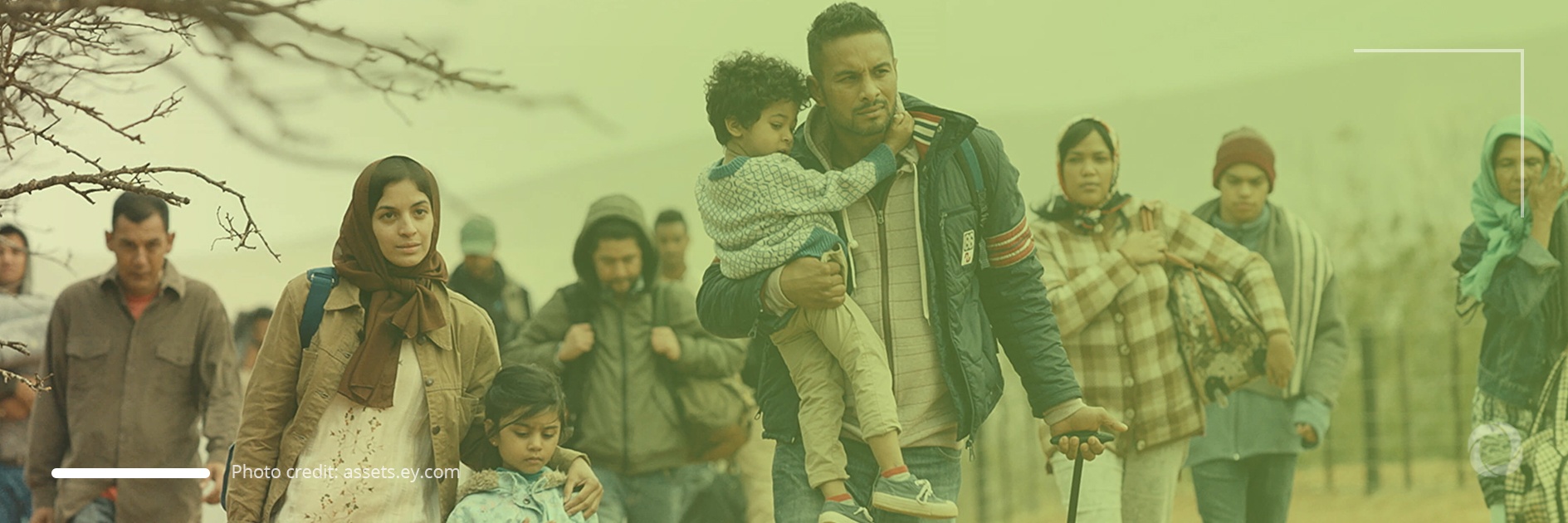Reports from media outlets, private organizations and public bodies have for some time now been sounding alarm bells regarding the act of the illegal pushback of refugees by the European Union. A recent journalistic investigation has indicated that during the pandemic the EU has pushed back thousands of asylum seekers which has caused the death of about 2,000 refugees. While international bodies have called for an official investigation into the matter, as yet the EU has not officially responded to any of the allegations.
Pushback allegations
An investigation by The Guardian made public this May revealed that the EU has illegally pushed back at least 40,000 asylum seekers during the pandemic via the European Border and Coast Guard Agency (Frontex). The Guardian reached this conclusion based on reports from NGOs dealing with migration, official documents from the UN and governmental agencies of EU states, and by collecting the testimonies of asylum seekers themselves.
The publication noted that EU member states, in particular Italy, Malta, Greece, Croatia, and Spain, supported by Frontex, had been systematically pushing back asylum seekers, including children, who were attempting to flee war zones by undertaking dangerous voyages across the Mediterranean.
In late 2020, the Danish Refugee Council (DRC), an international humanitarian displacement organization, recorded that over 21,000 migrants had been subject to illegal pushbacks by Croatian police patrols in just one year. The Croatians were reported to have forced asylum seekers to head for Bosnia and migrants have accused them of whipping, robbing, sexual abuse, and spray-painting red crosses on their heads which the officers explained as being a cure for the coronavirus.
The Border Violence Monitoring Network (BVMN), a coalition of 13 NGOs based in the Balkan countries and Greece, has issued a report that includes the testimonies of asylum seekers of whom 90% indicated that local security services had used a disproportionate amount of force against them.
“Extremely cruel examples of police violence documented in 2020 included prolonged excessive beatings (often on naked bodies), water immersion, physical abuse of women and children, the use of metal rods to inflict injury,” the report noted.
For its part, the United Nations Refugee Agency (UNHCR) has pointed out that since 2017 Italy has pushed back 15,500 asylum seekers from Libya to Tripoli, leaving them at the mercy of a brutal regime and thus possibly doomed to torture while some drowned on the way back to Tripoli with neither Italy nor Libya taking any measures to rescue them.
Furthermore, organizations dealing with asylum seekers in Europe claim that the number of pushbacks is underestimated.
Official stance
In reaction to reports of pushback, UNHCR has called for “urgent inquiries into alleged violations and mistreatment”. The agency’s Assistant High Commissioner for Protection, Gillian Triggs, said that:
“UNHCR has received a continuous stream of reports of some European states restricting access to asylum”.
Noting that the number of asylum seekers has decreased by 33% since 2018, Triggs described the situation as a “politicized issue”, rather than one caused by a higher influx of migrants.
Ylva Johansson, the European Commissioner for Home Affairs, has called on Frontex to clarify the accusations.
“It’s important both to clarify if there have been any pushbacks that they have been taking part in, but also equally important is to make sure that we have the proper functioning, the proper routines, the proper way of reporting in Frontex,” she said.
The European Anti-Fraud Office (OLAF) has opened an investigation into the alleged involvement in illegal pushbacks by Frontex which is also currently under investigation by the European Parliament and the European Ombudsman, Emily O’Reilly.
Last April, Frontex denied the allegations, and its leader, Fabrice Leggeri, told France 24 that:
“There is no evidence that Frontex, or officers deployed by the member states under Frontex operations, have participated in or covered up any illegal pushbacks in the maritime domain”.
However, Frontex did not rule out that pushbacks may have occurred in some instances.
In the meantime, the European Court of Human Rights has sued Greece after dozens of migrants were left in rafts on the sea without food, water, or even lifejackets in order that they could be pushed back to Turkey.
Overview
The pushback of migrants is illegal under Article 33 of the 1951 Refugee Convention which states:
“No contracting state shall expel or return (“refouler”) a refugee in any manner whatsoever to the frontiers of territories where his life or freedom would be threatened on account of his race, religion, nationality, membership of a particular social group or political opinion.”
Furthermore, Article 5 of the Frontex Code of Conduct is fully compliant with Article 33.
According to Eurostat, 106,200 people received refugee status in EU countries in 2020, with 50,300 being awarded subsidiary protection status and 55,400 issued with authorization to stay for humanitarian reasons. The highest number of refugees was taken by Germany (24.6%), followed by Spain (86,400, or 20.7%), France (81,800, or 19.6%), ahead of Greece (37,900, or 9.1%) and Italy (21,200, or 5.1%). Those seeking asylum came mostly from Syria, followed by Afghanistan, Venezuela, and Colombia.

